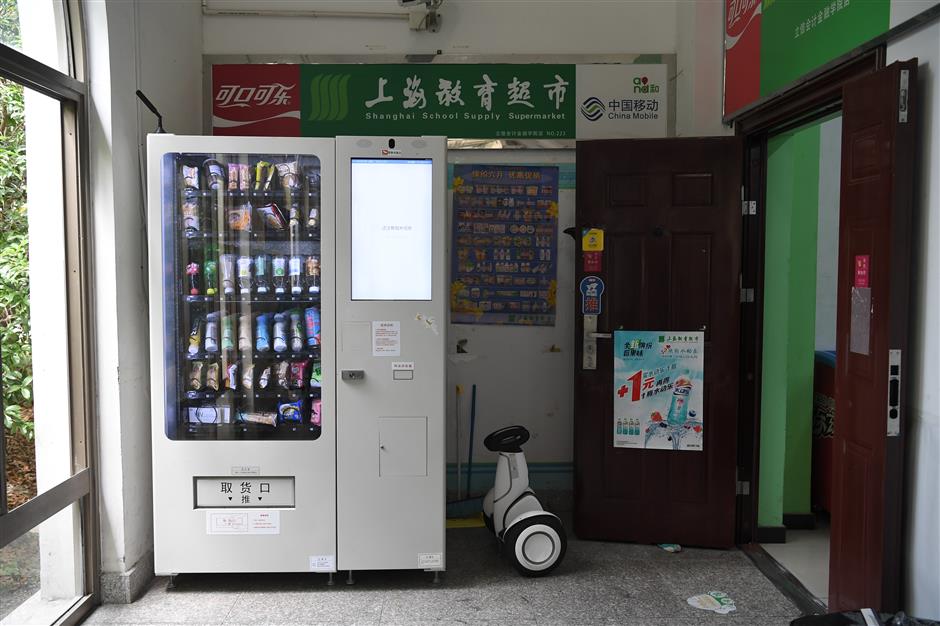More universities to get HIV kit vending machines

The vending machine selling HIV test kits at Shanghai Lixin University of Accounting and Finance
More universities in Shanghai will be equipped with HIV test-kit vending machines after the first three such campus machines were installed in April, the local disease control authority told Shanghai Daily.
A total of 63 HIV test-kits have been distributed from three machines at Shanghai Lixin University of Accounting and Finance, Tongji University, and Shanghai University. As of June 14, 46 samples have been collected for lab testing, according to the AIDS/STD Control and Prevention Department at the Shanghai Center for Disease Control and Prevention.
Two of the kit samples showed positive results and three were inconclusive. The rest were negative. The kits require users to submit urine samples in order to receive a diagnosis.
Liu Chunxin, a physician at the department, warned that urine tests are not 100 percent accurate and those who got positive results should visit nearby hospitals or disease control centers for a more accurate blood test, as well as prompt treatment. All disease control centers at the city and district levels in Shanghai offer free HIV testing.
She advised those who tested negative to remain cautious and have another check in three months following high-risk activities.
Young people, especially young gay men, have featured prominently among new infected cases in recent years.
Shanghai found 1,959 new HIV infection cases between January 1 and November 20 in 2016 and 91.6 percent of them were male, according to the statistics released by the Shanghai Health and Family Planning Commission.
Among these men, 318 were aged between 18 and 24, up 79.7 percent from the same period of the previous year, and most of them got infected through unsafe sex.
Liu said the vending machines provide a convenient testing method for students following high-risk behavior. Many young people avoid tests at physical facilities for fear of compromising their privacy.
The vending machines sell snacks, noodles and drinks alongside the kits, which can be used anonymously.
Users can buy the kits for just 30 yuan (US$4.54), take their own urine samples and drop them back in the machines’ deposit drawers. Test takers can get all the 30 yuan refunded when they check the results online.
Liu explained that the program uses urine sample as they is easier and safer for ordinary people to take samples, compared with spit or blood. And urine can transported at room temperature and disposed of without special treatment.
Campus hospital staff at the three universities come to check the drawers and fetch samples about twice a week and send them to nearby disease control and prevention centers for testing.
The test results are posted online three to five workdays later and can only be seen by users with codes from each kit.
Throughout the process, kit user don’t have to go to the hospital or reveal their identity.
Liu said disease control authorities are talking with more universities and one or two more are likely to join the program before the end of year.















